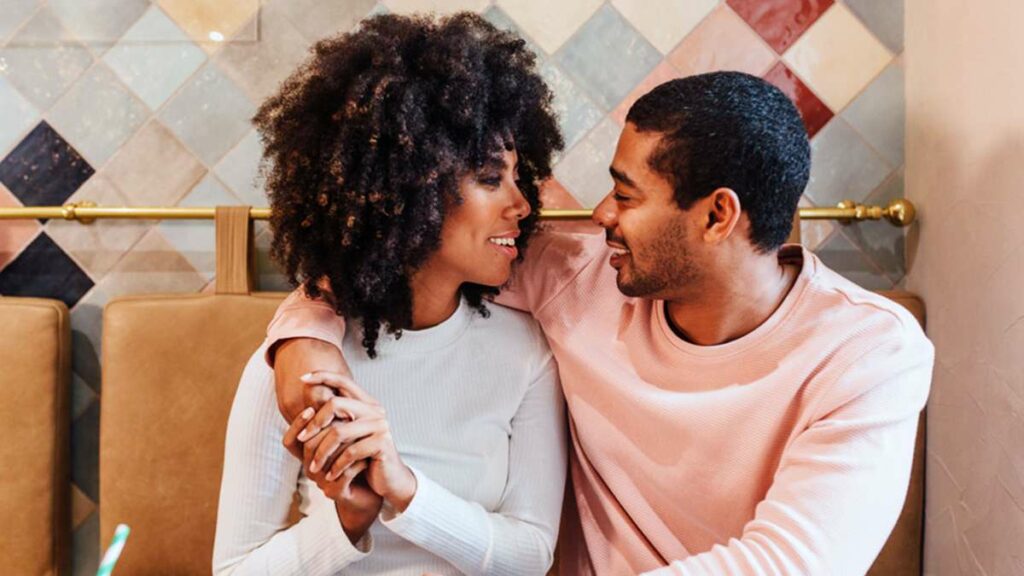Ever wondered if your relationship is as harmonious as it should be? You’re not alone. In a world where love often seems as complex as a Rubik’s cube, it’s easy to feel lost. But fret not! There are clear signs that can help you discern if you’re in a balanced relationship.
Understanding a Balanced Relationship

Balancing a relationship entails mutual understanding and respect. This section illuminates the characteristics of a balanced relationship and emphasizes their importance.
Key Traits to Look For
Recognize a balanced relationship by focusing on these fundamental traits.
- Mutual Respect: Notice, does your partner value your views and decisions, even when they’re different from their own? That’s mutual respect.
- Open Communication: Is discussion effortless and honest between you two? That’s open communication.
- Healthy Arguments: Do you consider disagreements constructive rather than destructive? That’s the sign of healthy arguments.
- Trust and Honesty: Does faith prevail in your relationship without any doubt? Here’s your trust and honesty.
- Equal Power: Is decision-making a collective process rather than a single-handed activity? That indicates equal power.
The Importance of Balance in Relationships
Mastering balance in a relationship bears significant outcomes.
- Decreases Stress: Balance maintains mental peace, reducing stress and anxiety.
- Fosters Growth: It allows space for personal and mutual growth.
- Enhances Understanding: Balance encourages understanding, curtailing conflicts.
- Bolsters Stability: With balance, there’s a greater stability which enhances your relationship’s longevity.
- Promotes Happiness: A balanced relationship fosters happiness, thereby creating an enjoyable and supportive environment.
The above factors serve as a beacon to help you identify if your relationship is harmonious. Remember, balance doesn’t mean perfection, only that both partners equally contribute to the relationship’s health and growth.
Signs You’re in a Balanced Relationship

Mutual Respect and Understanding
Respect forms the basis of a balanced relationship. Partners perceive each other’s feelings and perspectives, and value them. Understanding helps intertwine your lives. For instance, consider a partner who listens attentively to your daily happenings and provides thoughtful input.
Effective Communication
Clear, empathetic communication sets the foundation for comprehension in a relationship. You’ll find open discussion, on topics mundane, trivial, complex or emotional. Visualize a scenario where your sentiments are acknowledged, slight variations in mood recognized and addressed promptly.
Support and Encouragement
Support offers a safety net during challenging times. Encouragement propels personal growth. Imagine a circumstance, where your partner celebrates your accomplishments, and equally, comforts you in setbacks, pushing you towards your ambitions.
Trust and Honesty
Trust and honesty foster security in a relationship. Know that your secrets are safe and your partner’s actions are consistent with their words. For example, your partner being transparent about their interactions, sharing the truth despite the discomfort involved.
Independence and Space
Independence in a relationship promotes personal growth. Space helps prevent feeling suffocated. Envision a partner who recognizes your personal interests and activities, and gives you room to pursue them without infringement.
Common Goals and Values
Shared ambitions foster unity, while common values provide consistency. For instance, both you and your partner may envision buying a home in five years, sharing principles like honesty and hard work.
Fair Conflict Resolution
Conflicts are inescapable in relationships, fair resolution strengthens the bond. Picture disagreements where voices aren’t raised, harsh words are kept at bay, issues are addressed respectfully and smoothly.
Emotional Safety and Security
Feelings of safety and security amplify comfort. It could be as simple as the reassurance from your partner that they’re there for you during personal crises or when you’re feeling low.
Enjoyment and Fun Together
Enjoyment strengthens the bond. Activities, like watching a movie, cooking together or a beach outing, can provide opportunities for shared fun and laughter.
Growth and Adaptation
A balanced relationship promotes personal development. Both partners adapt to changes over time. For example, your partner’s encouragement during a career shift or support while you learn to manage your finances.
How to Maintain Relationship Balance

In the pursuit of a balanced relationship, intentional actions and choices significantly influence the dynamics. This section delves into strategies like constant communication and regular check-ins to help maintain relationship balance post-observation of the signs discussed in previous sections.
Constant Communication
A balanced relationship thrives on consistent communication. Conversing regularly encourages understanding and clarity, eliminating chances for misunderstandings or assumptions that could potentially harm the relationship. For example, discussing day-to-day activities, emotions, thoughts, and concerns brings about a greater sense of closeness, builds trust, and fosters emotional intimacy.
Moreover, constant communication doesn’t mean incessant chatter. It’s about ensuring each partner feels heard, understood, and valued. An occasional “How are you really feeling?” or “What’s on your mind?” sprinkled throughout your daily routine can go a long way in fostering transparency and trust. Remember, it’s not about the quantity of conversation, but about the quality and depth that truly counts.
Regular Check-ins
In a balanced relationship, regular check-ins serve as a useful tool. These are instances where you consciously take time to connect with your partner about your relationship’s status. They help in keeping the relationship fresh and are a reminder about the love, respect, and appreciation you have for each other.
Regular check-ins might involve discussing what’s working well and what requires attention in the relationship. They also serve as the perfect time to revisit shared goals and desires, ensuring that both partners are still on the same page and working towards their common vision as a couple. Furthermore, check-ins can often lead to the proactive resolution of issues, where potential problems can be identified and dealt with before they escalate.
Indeed, maintaining a balanced relationship requires effort, practice, and intentional actions. However, practicing constant communication and regular check-ins can help ensure that the balance remains steady and that both partners are consistently tuned into their relationship’s health and progress.
Conclusion
So you’ve learned the hallmarks of a balanced relationship and how to keep it thriving. Remember, it’s all about mutual respect, open communication, trust, and shared goals. It’s these core elements that create a strong, healthy bond. And it’s not just about recognizing these signs, but actively working on them. Keep those lines of communication open and make regular check-ins a part of your routine. This way, you’re not just waiting for issues to crop up, but you’re proactively nurturing your relationship. With these strategies in place, you’re well on your way to maintaining a fulfilling, balanced partnership. So keep striving, keep communicating, and above all, keep loving. The health and happiness of your relationship depend on it.
Frequently Asked Question
What are the characteristics of a balanced relationship?
A balanced relationship is characterized by mutual respect, open communication, trust, and shared goals. These traits foster an environment where both partners feel valued and understood.
What are some signs that you are in a balanced relationship?
Signs of being in a balanced relationship include feeling respected, being able to communicate openly, trusting your partner, and having shared personal and relationship goals.
How can one maintain a balanced relationship?
Maintaining a balanced relationship can be achieved by regular communication and regular check-ins with your partner. These strategies ensure a continuous mutual understanding and maintain the relationship’s health.
Why is constant communication crucial in a relationship?
Constant communication fosters understanding and emotional intimacy in a relationship. It ensures all issues are discussed promptly and misunderstandings are minimized.
How do regular check-ins contribute to a healthy relationship?
Regular check-ins keep the relationship fresh and proactive by discussing any issues and ensuring both partners are tuned into the relationship’s health and progress.

